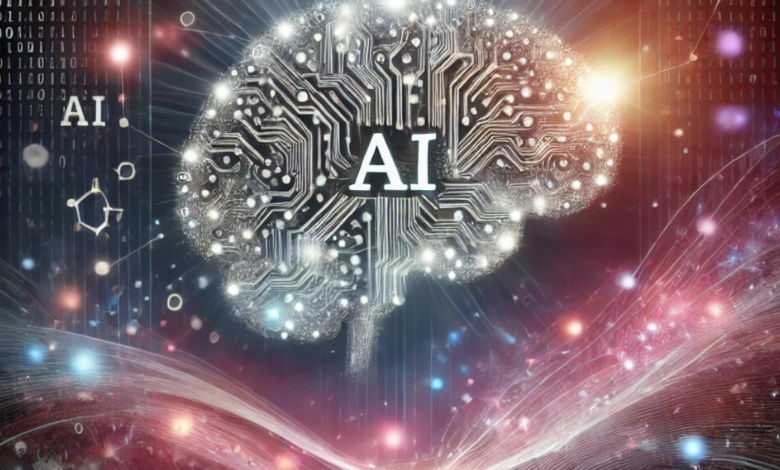Perchance AI Meaning: Unraveling the Intriguing Concept of AI Potential

Introduction to Perchance AI
Artificial intelligence (AI) has been a buzzword for decades, revolutionizing industries and redefining how humans interact with technology. Among the many terms floating around in the AI realm, “Perchance AI” has emerged as a curious concept that demands attention. But what does “Perchance AI” truly mean? Is it a term grounded in technical innovation, or does it delve deeper into the philosophical or speculative side of AI? In this article, we’ll explore the layers of meaning behind “Perchance AI,” its implications, and its potential impact on society.
The Origin of “Perchance AI”: A Linguistic and Conceptual Dive
The word “perchance” is derived from Middle English, originating from Old French phrases that combine “par” (by) and “chance” (chance). It’s often used to imply “perhaps” or “by chance.” This linguistic nuance lends an air of possibility, serendipity, and uncertainty—qualities that resonate deeply with the essence of artificial intelligence.
When paired with “AI,” the term “Perchance AI” takes on a dual meaning. It could refer to AI systems that embrace unpredictability and randomness or hint at the idea of AI evolving capabilities that mimic human intuition, often described as working “by chance.”
AI and the Philosophy of Possibility
“Perchance AI” could also symbolize philosophical musings on the nature of AI’s potential. As AI systems grow more advanced, questions arise: Can AI truly think like humans? Will it achieve consciousness? Could AI’s future evolution result in outcomes that are, quite literally, by chance? These questions align with the speculative undertones of the term.
Randomness and Creativity in AI
One of the most fascinating aspects of AI is its ability to generate creativity seemingly out of randomness. Generative models like GPT (which powers this article) or image-generation systems like DALL-E often produce outputs that feel inspired and imaginative. “Perchance AI” could describe these systems, as they work by analyzing probabilities and producing results that appear both novel and unexpected.
For example:
- Art and Music Generation: AI can create art and compose music that feels almost human, relying on algorithms trained to make decisions “by chance” within certain parameters.
- Storytelling AI: Platforms like Perchance—a tool for generating random text prompts—embody the idea of “Perchance AI,” enabling users to create content that’s both surprising and meaningful.
Enhancing Decision-Making Through Probabilistic Models
In industries such as healthcare, finance, and logistics, AI’s ability to make probabilistic decisions can transform operations. While deterministic models follow a strict “if-this-then-that” logic, probabilistic models embrace uncertainty, offering multiple potential outcomes. These systems might be dubbed “Perchance AI” for their reliance on randomness to achieve optimal solutions.
Could AI Develop Intuition?
One of the biggest debates in AI research is whether machines can ever develop human-like intuition. While current AI models rely on vast amounts of data, intuition often involves making decisions with incomplete information. “Perchance AI” could be a stepping stone toward machines that don’t just compute but also intuit, much like humans do.
The Ethics of Randomness in AI
As AI becomes more integrated into critical decision-making processes, randomness raises ethical concerns. For instance:
- Bias in Algorithms: If randomness influences AI, how can we ensure it doesn’t inadvertently perpetuate biases?
- Accountability: In systems where outcomes are driven by chance, who is held responsible when things go wrong?
The Future of Perchance AI: What Lies Ahead?
These questions emphasize the need for transparency and ethical frameworks in the development of AI systems.
AI as a Tool for Discovery
“Perchance AI” could evolve as a framework for discovery, helping scientists and researchers uncover new insights. Whether predicting protein structures, simulating complex systems, or exploring uncharted territories in space, AI’s ability to operate “by chance” might lead to breakthroughs that structured approaches cannot achieve.
Philosophical and Cultural Implications
As the concept of “Perchance AI” gains traction, it might inspire a cultural shift in how society views technology. Could randomness in AI be seen as a reflection of life’s inherent unpredictability? This perspective could redefine our relationship with machines, moving from rigid utilitarianism to a more organic, symbiotic understanding.
Conclusion: Embracing the Meaning and Potential of Perchance AI
The term “Perchance AI” embodies the tantalizing possibilities and uncertainties of artificial intelligence. It invites us to ponder not just what AI can do, but how it operates, evolves, and surprises us along the way. Whether as a descriptor for creative and probabilistic systems or as a philosophical lens for viewing AI’s future, “Perchance AI” challenges us to rethink the boundaries of human and machine potential.
As AI continues to grow and innovate, the meaning of “Perchance AI” will likely expand, encompassing new ideas and applications. For now, it stands as a reminder of the unpredictable, ever-evolving nature of technology—and the endless possibilities it holds for humanity.





